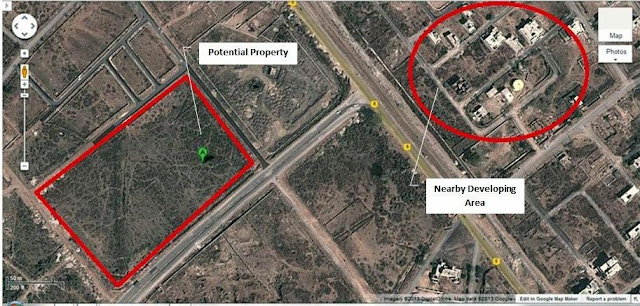Many often, we come across this
dilemma when we wish to make an investment, not only in Real Estate, but even
while investing in Equities and Bonds. Let us try to decipher this confusion.
Define a Time Horizon
The first thing you should do is
to decide is the time window you are looking at while making the investment.
The decision of high/low valued assets will follow your time horizon. We
typically define the windows as follows:
1-5 years: Short-term
Investment
5+ years: Long-term Investment
Everything has a Limited Upside
This is one fact that you should
imbibe in your thoughts if you want to be a successful investor in any asset
class, real estate included. You cannot count indefinitely on the increasing
prices and trust that they will keep on increasing forever. There will be a
stage when the price movement will virtually halt and the growth rate will
shrink manifolds.
The Decision!
Once you have decided your time
frame and imbibed our above advice in your wits, it’s time to take the
decision. Check the analysis done below:
Here we are taking an assumption
that the upside for High Priced property is 10 years & for low priced, it
is 7 years. This is justified because generally the high priced property is more
sustainable as compared to the low priced property.
Initial Investment
|
Initial / Long Term Growth Rate (%)
|
Short Term (1-5 years)
|
Short Term Returns
|
Long Term (5+ years)
|
Long Term Returns
|
CAGR
|
|
Low Priced
|
$ 100,000
|
13 / 8
|
$ 163,047
|
63.05%
|
$ 190,178
|
90.18%
|
7.40%
|
High Priced
|
$ 1,000,000
|
8 / 8
|
$ 1,360,489
|
36.05%
|
$ 1,999,005
|
99.90%
|
8.00%
|
As is apparent from the above
analysis, the Low Priced Property
yields more returns in short term and comparatively lesser returns in the long
term as compared to the High Priced
Property.
With this illustration, this
discussion comes to a conclusion:
Low Priced :
|
Short Term
|
High
Priced :
|
Long Term
|
Disclaimer: The above analysis
holds good for most of the cases, but not all. Hence it is advisable to take an
informed decision before making any investment.
------ Thanks for reading RealT Horizon J Happy Investing ------
















